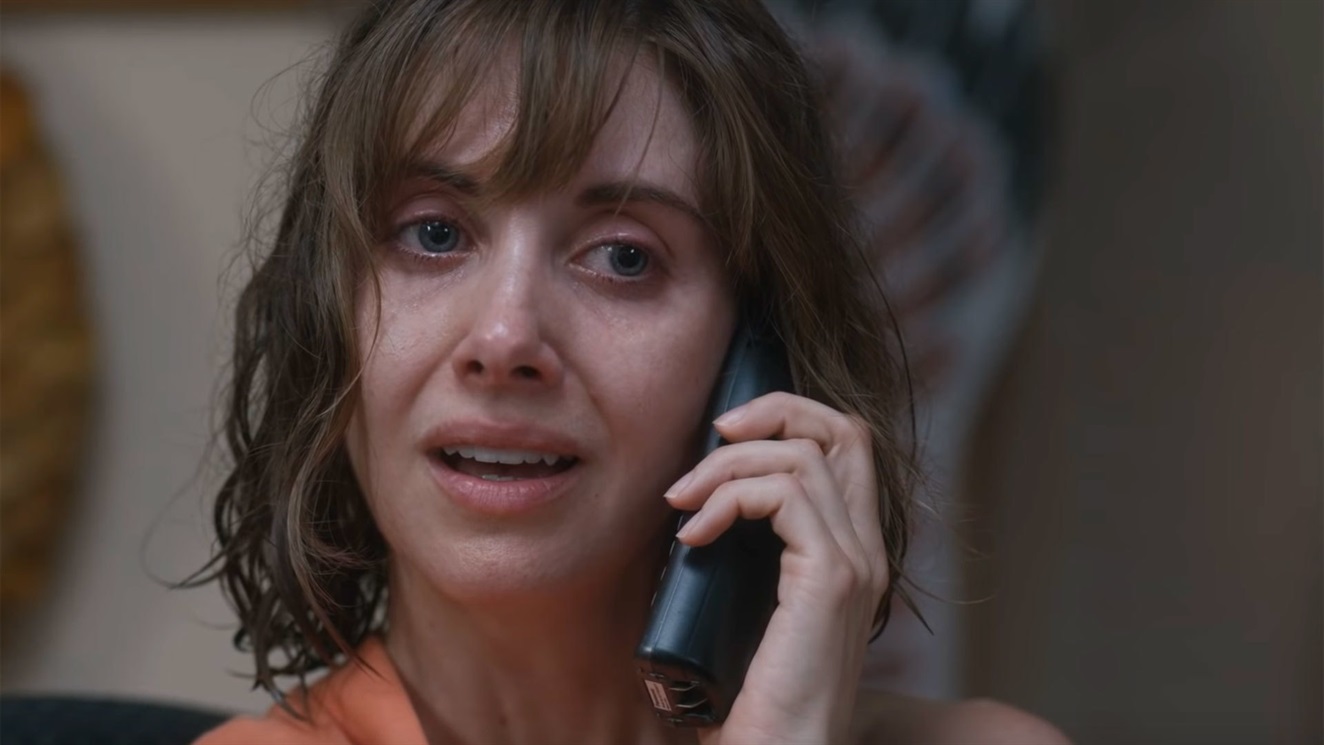Alison Brie loses her grip on reality in Horse Girl
Jeff Baena’s film Horse Girl focuses on a woman named Sarah who slowly loses her grip on reality. She is portrayed by Alison Brie as an awkward and shy woman, and we get a sense of Sarah’s daily life working at a crafts store by day and watching supernatural crime shows at night. At home, she’s pitied by her mean-spirited roommate Nikki, played by Debby Ryan. Nikki organizes a last-minute birthday party for Sarah who was going to spend the evening alone, and later that night she has a strange dream. Soon, Sarah begins to have recurring blackouts and starts to see people from her dreams in real life.
First and foremost, Alison Brie is spectacular. Her performance is believable, strong and moving. No matter how crazy Sarah’s delusions get, you never doubt that she believes them. Brie makes her character’s descent into madness feel rooted in real emotion. John Reynolds charmingly accompanies her as Darren, Sarah’s love interest who accidentally fuels her fantasies. Horse Girl was co-written by Baena and Brie, which marks the actress’s debut as a screenwriter. She is previously known for her stunning range of work in TV shows like GLOW, Mad Men and Community.
Despite being engrossing throughout its runtime, Horse Girl fails in achieving some ambitious goals that would have been integral in making the film memorable. There were plenty of interesting ideas: it’s a character study, it shoots for ambiguity through a possibly unreliable narrator, and it discusses conspiracy theories and issues related to mental illness.
On a technical level, the film is perfectly fine. There are cool zoom shots, and I particularly like some of the imagery in the film and how it depicts Sarah’s state of mind towards the end. There are some tonal shifts throughout the film as the atmosphere becomes darker and crazier, but these changes are justified because they make sense according to Sarah’s perspective. Additionally, the transitions were smooth.
Horse Girl is a bit slow to start but ambitiously grasps at many big themes, which I respected as a viewer. However, it was this attempt to capture so many ideas that led to my biggest issue with the film: the ambiguity, or lack thereof. Baena seems to be trying to puzzle the audience and make us wonder if Sarah’s delusions might be real. There are some suggestions that create this ambiguity, like scratches on walls or strange people who believe her theories, but the most compelling evidence was introduced too late in the story. Because of this, I was never convinced that any of the strange events were outside of her mind, despite the fact that the film is trying to set it up to be vague. This made the ending, although interesting, less impactful. When it came to themes of conspiracy theories and mental illness, they were not explored in-depth enough to feel like anything was truly being said about it.
All in all, Horse Girl is a fascinating study of one woman’s mind and the film stays committed to her perspective. It was not life-changing by any means, despite its attempts at tackling ambiguity and dark themes, and it isn’t as mind-bending as it would like to be. Yet, it’s a fun ride nonetheless. It’s worth it for Brie’s performance alone.




